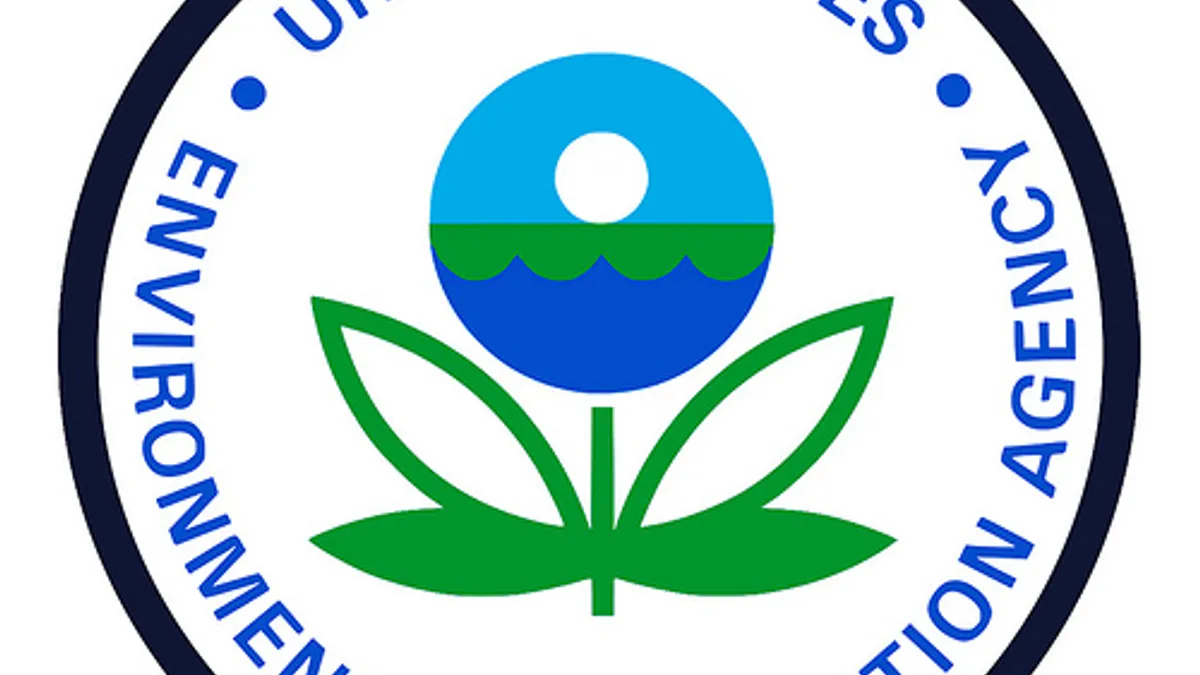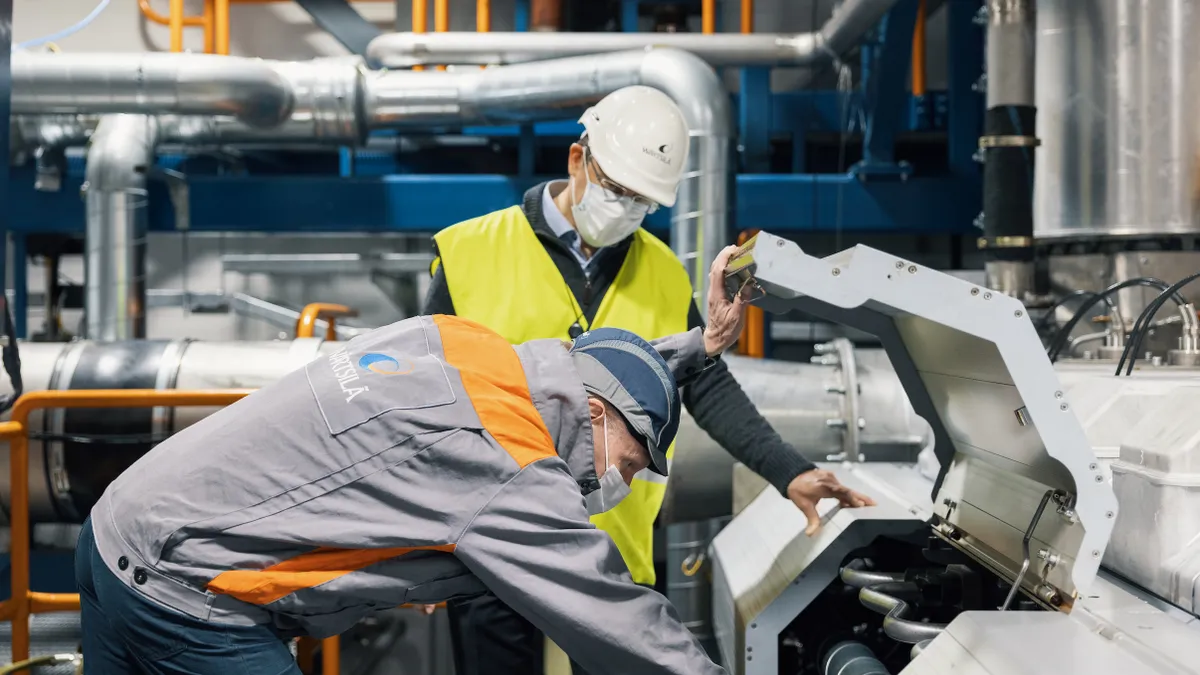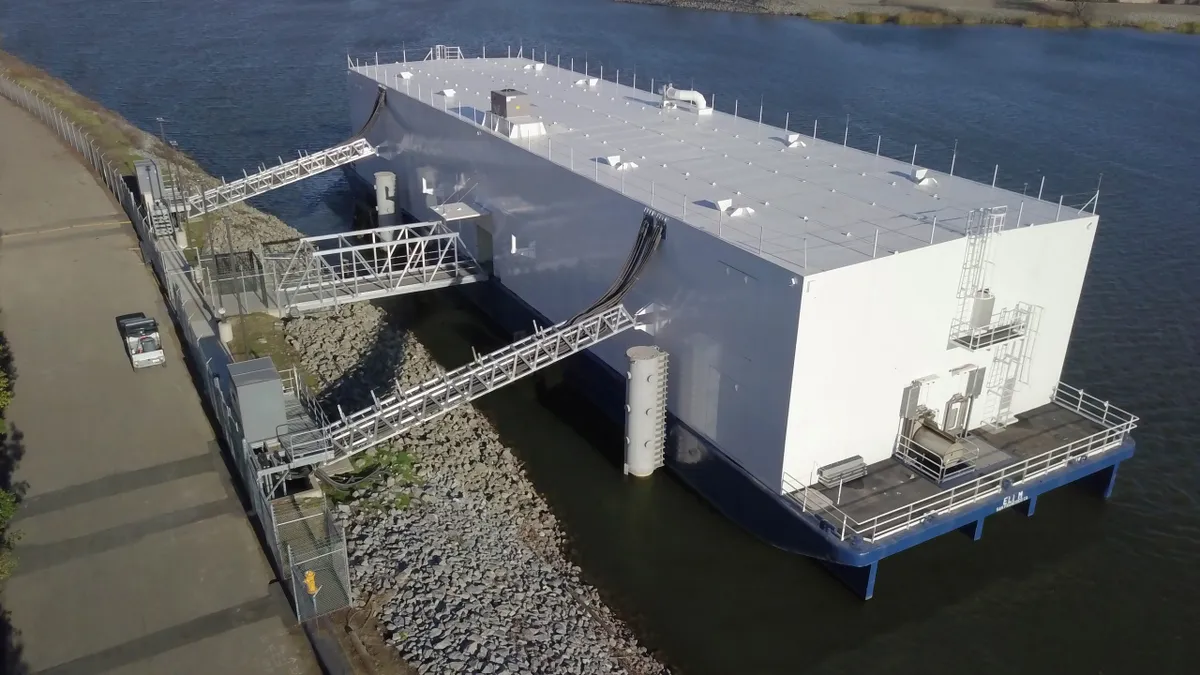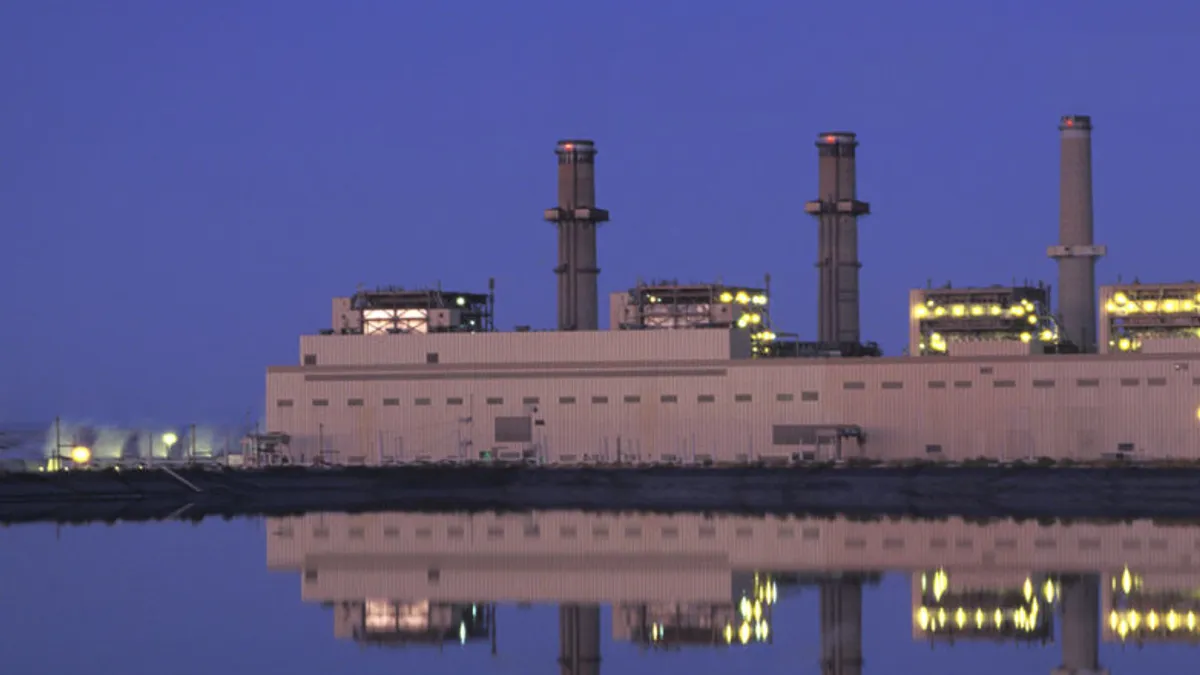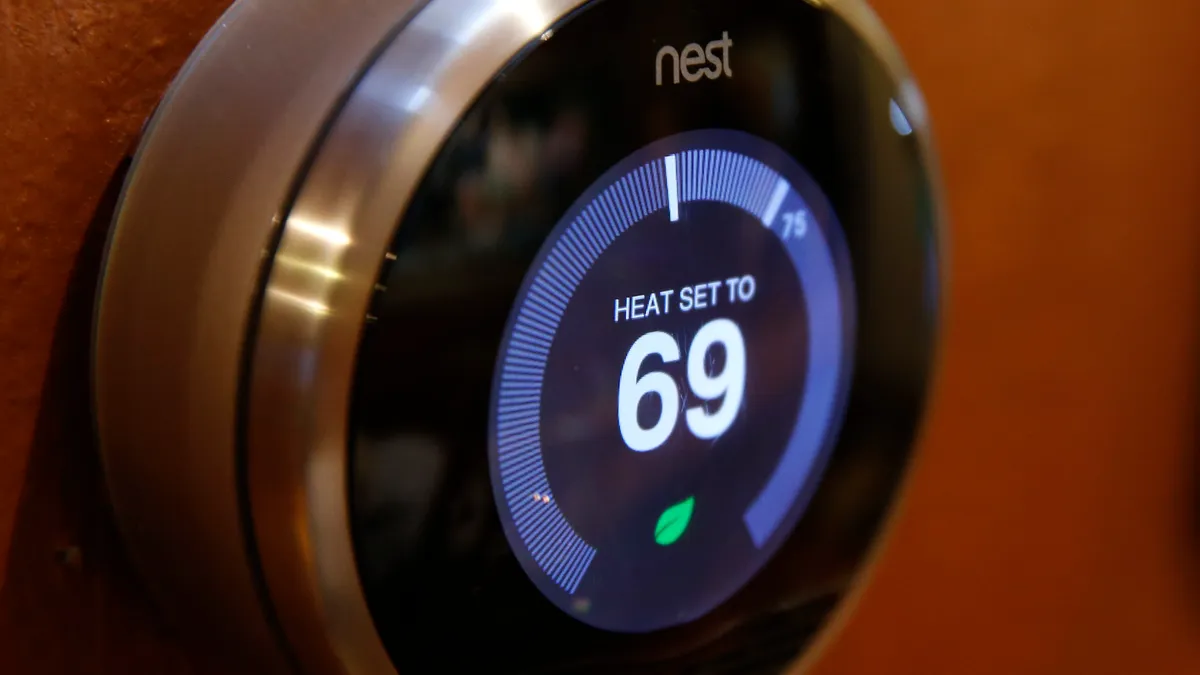Hello and welcome to our live coverage of Environmental Protection Agency (EPA) Administrator Gina McCarthy's announcement of emissions limits for new power plants. My name is Davide Savenije and I'll be publishing updates on the new rules as fast as I can. If you have any questions or comments, you can let me know via email at [email protected] or on Twitter at @davide_savenije.
The press conference, which is National Press Club in Washington, D.C., kicks off at 9AM EDT and ends around 10AM EDT. Please refresh this page for live updates and be sure to check back later in the day for a comprehensive report and analysis on the new rules and what they mean. In the meantime, you can check out our piece on the new rule's implications for the future of coal-fired power.
Without further ado, we present our live coverage of the new EPA emissions limits. So, sit back, relax and refresh. Here's what you need to know:
[Editor's note: Live updates will appear here as we know more.]
11:25 AM EDT: Click here for a full transcript of Gina McCarthy's prepared remarks.
9:59 AM EDT: And that ends today's press conference. Until next time.
9:58 AM EDT: Q: Will you allow journalists access to EPA scientists? A: I think we always do. Any problems and we'll talk.
9:58 AM EDT: Last question coming up. Gift of coffee mug presented to McCarthy. "As long as it's less than $5, I can accept it."
9:56 AM EDT: Question about fracking. I'll skip that one. Don't forget to check back later this afternoon. We will have a report and analysis of new EPA emission rules on new power plants.
9:52 AM EDT: Q: Kemper project using CCS but is vastly over-budget. What are your thoughts? A: Kemper is not a good model if you're wondering whether CCS is going to be available. 4 plants with CCS are currently being built. Kemper is not good example because Southern is testing many new technologies there, so there's a lot more playing into that situation.
9:50 AM EDT: Q: CCS not yet being used at a plant. Why does EPA think it's ready? A: No question carbon capture can be done effectively. Been done since 1930's. We know how to do it. McCarthy cites example of gasification plant that does CCS at higher standard than new EPA rules. But thinks CCS tech can get better. $6 billion in resources to fun R&D of CCS. These technologies will secure future not only for American energy, but for coal.
9:48 AM EDT: EPA is going to energy conferences to listen to utilities' pain points. EPA will spend next year traveling to listen to stakeholders and also help them understand technical aspects and flexibility in the rules. Americans need not be afraid of these new rules.
9:47 AM EDT: McCarthy. New plants need to be designed around CCS. I do not want people to think CCS will be mandated for existing plants next year. That is not necessarily the case.
9:43 AM EDT: Q: Why one-year comment period for rule? A: Sends signal to market for those thinking about building new power plants. But we do believe there is a place for carbon-fired generation, but it must be clean.
9:42 AM EDT: McCarthy: Information is changing as science comes in. Every few years, projection models are updated. These rules always cause anxiety, but rule-making process allows for comment. These rules are necessary, but we are open to hearing the impact of consequences for all.
9:40 AM EDT: McCarthy: Even previous administration recognized carbon had a cost.
9:38 AM EDT: Q: Why did EPA shorten flexibility period from 30 years to 7? A: We found way to get environmental reductions while helping industry make this work. Flexibility period allows industry to adapt to the challenge with partial CCS.
9:35 AM EDT: Q: How will EPA act to ensure electricity customers are not affected? A: This is about the future. We needed to understand tech available and make a rule that took into account cost and future for new power plants. Peaking natural gas units rule is slightly different because of operational issues; discussions are technical and each situation bears some flexibility. CCS needed, but it may be a challenge out of the gate for generators.
9:34 AM EDT: Q: What do you say to those who are skeptical of EPA motives? A: EPA does not have aspirations outside of authority given to us. We are regulated pollutant authorized under Clean Air Act. We make sure decisions are reasonable, rational, data-driven and science-based. It's not about fuels we like or don't like.
9:32 AM EDT: Q: Concessions made to coal industry? A: McCarthy proud EPA listens to all stakeholders, especially companies that are being regulated. Standards, rather than doing damage, promote industry to grow. Worked with utilities to understand what tech was available. Work with them during comment period to get them prepared for a carbon-constrained world. "We think we have done exactly the right thing. We are solving the greatest public health challenge of our time."
9:30 AM EDT: McCarthy speech over. Questions coming. First one touches upon how CCS is not commercially available. McCarthy says tech is available, plants are already being built for it. Says these rules actually show path forward for coal as opposed to killing. Hints that without rules, coal would be phased out. So, it's meet these standards or bust.
9:28 AM EDT: We can protect environment and promote economic growth at same time. These are not mutually exclusive. We have the know-how in U.S. to turn challenge into economic opportunity. As Obama says, we must gather courage to act. This is an obligation to leave our children a world as safe and healthy as the one we inherited. (Paraphrased)
9:27 AM EDT: Fuel economy standards for vehicles did not cripple auto industry; "they made it stronger and more competitive." Auto industry is thriving today.
9:26 AM EDT: McCarthy: New rules are first step to face challenge we cannot afford to avoid. These standards will not cause sky to fall, economy to crumble. On contrary, clean energy investments are paying off.
9:24 AM EDT: Acting on climate change is one of the great economic opportunities, McCarthy says. Everyone is a stakeholder in this and we must start today.
9:23 AM EDT: McCarthy jokes in a thick Boston accent: " I should make sure that everyone knows when I talk about cah-bon, I'm talking about carbon."
9:22 AM EDT: McCarthy says rules for existing power plants will be proposed next year, June 2014. She emphasizes that she will spend year listening to stakeholders.
9:21 AM EDT: McCarthy emphasizes that long-term decisions on building new power plants that will live on for ~70 years must be made with the future in mind.
9:20 AM EDT: Carbon capture and sequestration technology must become like scrubbers today: widely used. EPA rules will effectively mandate this.
9:19 AM EDT: You might be asking yourself what the limits actually are. Here they are: "New large natural gas-fired turbines would need to meet a limit of 1,000 pounds of CO2 per megawatt-hour, while new small natural gas-fired turbines would need to meet a limit of 1,100 pounds of CO2 per megawatt-hour. New coal-fired units would need to meet a limit of 1,100 pounds of CO2 per megawatt-hour, and would have the option to meet a somewhat tighter limit if they choose to average emissions over multiple years, giving those units additional operational flexibility."
9:18 AM EDT: First national standards for new power plants. McCarthy emphasizes this does not apply to existing plants.
9:16 AM EDT: Power plants are the single largest source of carbon pollution. New plants must take advantage of "available" technology to reduce emissions.
9:14 AM EDT: McCarthy: We must be stewards of our natural resources. Obama's Climate Action Plan calls on agencies to cut carbon pollution that fuels changing climate. Must prepare for unavoidable, inevitable impacts of climate change. U.S. must address this global challenge as a leader. But, also, reliable and affordable energy for all.
9:12 AM EDT: McCarthy: Not just adults who suffer from air pollution, it's about our children. That is why EPA cares about climate change and why it must take action today.
9:11 AM EDT: McCarthy emphasizes that climate change has a massive impact on human health: "Smog makes it harder to breath, and many of us likely know someone who is affected."
9:09 AM EDT: McCarthy enumerates the impact of climate change: it threatens the live-ability of our communities. Climate change brings about more and worse wildfires, droughts and other extreme weather events.
9:08 AM EDT: McCarthy: Must take action before it's too late. Carbon pollution one of greatest public health threats. We must talk about emissions in our everyday lives.
9:06 AM EDT: McCarthy: "Do we have the courage to act before it's too late?" Obama called for EPA to take action to protect environment and public health due to climate change. New regulation will preserve world for generations to come. (Paraphrased)
9:05 AM EDT: McCarthy steps up to the podium and we're off. She quickly makes a joke about how she worked hard for the six Republican votes she received during confirmation.
9:02 AM EDT: Just to give you an idea of what the room looks like here. Reporters and policymakers sitting together in a small, very busy room. Many sitting at breakfast tables with lavish fruit cups. A panel at the front with EPA Administrator Gina McCarthy and others.
9:00 AM EDT: And we're getting started... Press Club president is setting the stage and introducing everyone at the front table.
8:55 AM EDT: T-minus 5 minutes. Gina McCarthy getting ready to speak.
8:46 AM EDT: We're here at the National Press Club. Ready to get started. For those of you who want to watch it live, you can get a free video stream here starting at 9:00 AM EDT: http://www.c-span.org/Live-Video/C-SPAN2/



